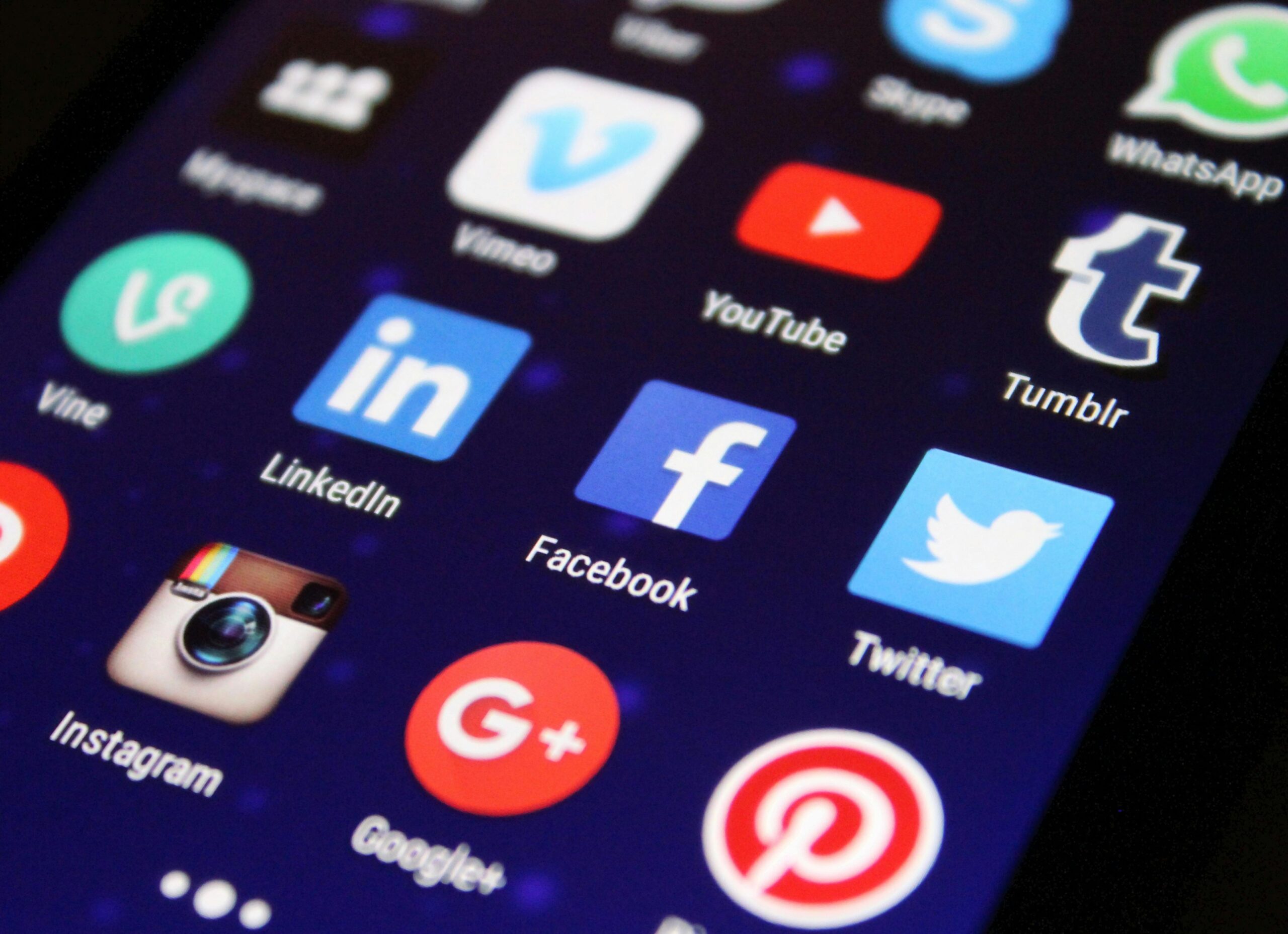what is social media
In today’s digital landscape, social media has become an integral part of our daily lives, shaping how we communicate, share information, and interact with one another. Defined as online platforms that facilitate the creation and exchange of user-generated content, social media transcends geographical boundaries and connects individuals from diverse backgrounds. From Facebook and Twitter to Instagram and TikTok, these platforms have evolved significantly over the years, influencing personal relationships and societal norms alike. As we delve into the multifaceted world of social media, this article will explore its evolution, key features, various types of networks, and the profound impact it has on society, businesses, and future trends in this ever-changing arena.
What is Social Media
Definition and Overview
Social media is like the internet’s biggest, loudest cocktail party—where everybody is invited, and everyone has something to say. At its core, social media refers to digital platforms that allow users to create, share, and engage with content and each other. Think of it as the modern town square, where selfies, memes, and serious discussions mingle over virtual coffee. Whether it’s tweeting a hot take, posting vacation pics, or getting into a heated debate over pineapple on pizza, social media shapes how we communicate and connect in today’s world.
Importance in Modern Communication
In a world where texting “I love you” can be a bit too mushy, social media swoops in as the hero, adding layers of emojis, GIFs, and likes to our expressions. It has transformed how we communicate: news spreads faster than a cat video goes viral, and staying in touch with distant friends and family is just a click away. It’s not just about staying connected, though; social media is a powerful tool for businesses, advocacy, and even finding your next binge-watch recommendation. If you’re not on social media, do you even exist?
The Evolution of Social Media Platforms
Early Days of Social Networking
Back in the early 2000s, social media was like a shy wallflower at a dance—there were a few platforms, but they weren’t quite sure how to strut their stuff. Sites like Six Degrees and Friendster paved the way, allowing users to connect in rudimentary ways. Think of it as social media’s awkward teenage phase, where everyone was just trying to figure out their style while battling slow internet speeds.
The Rise of Major Platforms
Then came the game-changers: Facebook, Twitter, and YouTube. Like the popular kids in high school, they quickly took the spotlight and shaped the social media landscape. These platforms revolutionized how we share and consume content. Suddenly, everyone was a content creator, and hashtags became the most fashionable accessories on the internet. Brands jumped on the bandwagon, and before we knew it, social media turned into a must-have for anyone looking to be seen and heard.
Technological Advancements and Changes
Fast forward to today, and social media is constantly evolving, thanks to technological advancements. From mobile apps that fit in your pocket to algorithms that (sometimes) know you better than your best friend, these platforms are always finding new ways to keep us engaged. The introduction of live streaming, stories that disappear in 24 hours, and augmented reality filters ensures that social media never gets stale—making it as dynamic as your favorite trending dance challenge.
User-Generated Content
Forget about waiting for a publisher to tell you your work is worthy; social media is all about user-generated content! From blog posts and videos to art and memes, everyone has a voice (or a meme template) at their disposal. This DIY approach not only fosters creativity but also allows for diverse perspectives, making the internet feel like a colorful mosaic of opinions and experiences.
Networking and Connectivity
One of the most wonderful (and sometimes overwhelming) features of social media is its ability to connect people. You can meet your favorite author, reconnect with your kindergarten best friend, or accidentally stumble upon a discussion with a stranger halfway across the globe. Social media is the ultimate networking tool—whether you’re seeking friendships, collaborations, or potential love interests. Just don’t slide into DMs without a game plan!
Real-Time Engagement and Interaction
Forget waiting days for a letter to arrive; social media brings real-time engagement to the table. You can comment, like, share, and interact with content the moment it’s published—turning passive consumption into active participation. Whether you’re tweeting commentary on a live event or responding to a friend’s post within seconds, the immediacy of social media keeps conversations flowing and communities thriving.
Types of Social Media Networks
Social Networking Sites
These are the platforms where the magic of connection happens. Facebook, LinkedIn, and Twitter are prime examples of social networking sites, designed for users to create profiles, connect with others, and share updates. Whether it’s networking for career opportunities or sharing grandma’s famous lasagna recipe, these sites cover it all.
Media Sharing Platforms
If sharing photos, videos, and music is your jam, media sharing platforms like Instagram, YouTube, and TikTok are where it’s at. These sites focus on visual content, creating a feast for the eyes and ears. From epic fails to inspirational vlogs, the variety is endless—just make sure your phone camera is ready for action!
Discussion Forums and Communities
For those who love getting into the nitty-gritty of topics, discussion forums and communities like Reddit and Quora provide a space for debate, questions, and idea exchange. You can find a community for nearly any interest—be it knitting, conspiracy theories, or the best places to hide from your responsibilities—and dive deep into discussions that can last for hours (or days if you’re not careful!).
In conclusion, social media is an ever-evolving ecosystem that not only shapes how we communicate but also allows us to express ourselves in countless ways. So, whether you’re scrolling through your feed or crafting the perfect tweet, you’re part of a vibrant and dynamic digital universe.# What is Social Media
The Impact of Social Media on Society
Social Movements and Activism
Social media has emerged as the superhero cape we didn’t know we needed. From the Arab Spring to the Black Lives Matter movement, platforms like Twitter and Instagram have become battlegrounds for social change. They allow voices that might have been drowned out in traditional media to rise up, share their stories, and rally support. It’s like a megaphone for the masses—but be warned, with great power comes great responsibility. The rapid spread of information can also lead to disproportionate responses, so make sure to fact-check before you retweet that highly shareable post!
Influence on Public Opinion
If social media were a high school, it would be the cafeteria where everyone is discussing the latest gossip, but amplified by a million. With users sharing personal opinions, news, and memes, public opinion is shaped in real time. A viral tweet can sway perceptions faster than you can say “hashtag.” However, this speed can lead to echo chambers where only similar viewpoints thrive, ultimately creating a rather unbalanced mix of discourse. So, keep an open mind and maybe follow a few folks with differing opinions—your brain will thank you later.
Effects on Mental Health and Well-Being
Scrolling through social media can feel like a rollercoaster ride—one minute you’re laughing at cat videos, and the next, you’re spiraling into comparison anxiety as you check out that influencer’s perfect beach vacation. Studies show that social media can impact mental health, contributing to feelings of loneliness, depression, and anxiety. But it’s not all doom and gloom! It can also foster communities and support networks. The key? Balance is essential. Think of it like dessert: a little is delightful, but too much can make you feel queasy!
Benefits and Drawbacks of Social Media
Advantages for Individuals and Businesses
Social media is like that Swiss Army knife you never knew you needed. For individuals, it’s a way to connect with friends, family, and even strangers who share your passion for knitting or competitive cat juggling. For businesses, it’s a treasure trove of marketing opportunities. Want to showcase your avocado toast? There’s a perfect Instagram filter for that. Social media can expand your reach, attract new customers, and potentially lead to viral success. Just remember to keep those hashtags relevant—#NotAllAvocadoToastsAreCreatedEqual!
Potential Risks and Challenges
However, with every shiny new tool comes some pesky drawbacks. Privacy concerns, cyberbullying, and the addictive nature of scrolling are just a few of the dark clouds looming over social media. If you’re not careful, your online persona can blur the lines between reality and the polished highlight reel of your life. Moreover, the pressure to stay relevant can be quite overwhelming. So, while you’re busy crafting that perfect post, don’t forget to unplug now and then—real-world connections are still in-style!
Addressing Misinformation and Privacy Concerns
Ah, misinformation—the villain of our digital age. Social media platforms have been criticized for allowing fake news to run rampant. It’s like a game of telephone, but instead of getting a funny phrase, we might end up with a national crisis. Many platforms are now taking steps to address this, implementing fact-checkers and labeling dubious content. Additionally, privacy concerns loom large, as companies harvest our data like it’s Halloween night and we’re all wearing “trick or treat” bags. Being aware and proactive about privacy settings can help you keep your digital life your own.
The Role of Social Media in Business
Marketing and Brand Awareness
For businesses, social media is the modern-day equivalent of word-of-mouth marketing—but on a global scale. With just one clever meme or relatable post, a brand can go from the back of the shelf to the front—think of it as a ticket to the social media Hall of Fame. By sharing engaging content, companies can boost brand awareness and showcase their unique identity. Just remember, authenticity is key. In a world of curated posts, being genuine can make all the difference—and hey, who doesn’t love a little quirkiness?
Customer Engagement and Support
Gone are the days when you’d write a letter and wait three weeks for a response. Social media has transformed customer service into a real-time conversation. Customers can tweet their frustrations or slide into DMs, and businesses can address issues faster than you can say “customer satisfaction.” This engagement fosters loyalty, and let’s be honest, nothing feels better than a responsive brand. Just be wary of the dreaded online review—responding graciously can turn a negative situation into a glowing testimony!
Analytics and Performance Measurement
One of the best gifts social media gives businesses is access to data. With analytics tools, companies can track engagement, reach, and conversion rates. It’s like having a backstage pass to see what works and what flops. Want to know if your cat video or your infographic about the benefits of avocado toast performed better? Social media analytics has you covered. So channel your inner data scientist, because understanding the numbers can lead to better strategies and marketing triumphs!
Future Trends in Social Media
Emerging Technologies and Features
The future of social media is looking exciting—with emerging technologies like augmented reality (AR) and virtual reality (VR) on the rise, get ready for experiences that make you feel like you’re actually hanging out with your friends, even if they’re miles away. Want to try on that pair of virtual sunglasses before buying? You might just be able to! As these technologies evolve, social interactions could become more immersive and interactive, making the digital landscape even more engaging. Just imagine the possibilities!
The Growth of Niche Platforms
While giants like Facebook and Instagram rule the roost, niche platforms are making a splash, catering to specific interests and communities. Whether it’s an app for environmental enthusiasts or a platform for dog lovers, these specialized spaces allow users to connect over shared passions. This isn’t just a trend; it’s a sign that people are seeking more meaningful interactions. Say goodbye to the one-size-fits-all approach—it’s time for a social media buffet tailored to your tastes!
Impact of Regulation and Policy Changes
As social media continues to shape society, regulation is stepping onto the stage. Governments are grappling with how to manage data privacy, misinformation, and online safety. Expect to see more policies aimed at curbing abuse while maintaining freedom of expression. This balancing act is no walk in the park, but it’s essential for creating a healthier online environment. So, grab your popcorn and stay tuned—social media regulations are about to get interesting!In conclusion, social media continues to play a pivotal role in shaping our interactions and experiences in the modern world. While it offers numerous benefits, such as enhanced connectivity and opportunities for self-expression, it also presents challenges that we must navigate carefully. As we look to the future, understanding the evolving landscape of social media will be essential for individuals and businesses alike. By staying informed and mindful of both its advantages and potential pitfalls, we can harness the power of social media to foster meaningful connections and drive positive change in our communities.
Frequently Asked Questions (FAQs)
1. What are the most popular social media platforms today?
As of 2023, some of the most popular social media platforms include Facebook, Instagram, Twitter (now X), TikTok, LinkedIn, and Snapchat. Each platform serves different purposes and audiences, catering to various forms of content and interaction.
2. How does social media impact mental health?
Social media can have both positive and negative effects on mental health. While it can foster connections and provide support, it may also lead to issues such as anxiety, depression, and feelings of isolation due to cyberbullying, comparison, and addictive behaviors. It’s essential to use social media mindfully.
3. How can businesses effectively use social media for marketing?
Businesses can leverage social media for marketing by creating engaging content, using targeted advertising, interacting with customers, and analyzing performance metrics. Establishing a strong brand presence and building community engagement are key to successful social media marketing strategies.
4. What measures can be taken to ensure privacy on social media?
To enhance privacy on social media, users should regularly review and adjust their privacy settings, be cautious about the information they share, and utilize features like two-factor authentication. Staying informed about platform policies and potential security breaches is also crucial for protecting personal data.









